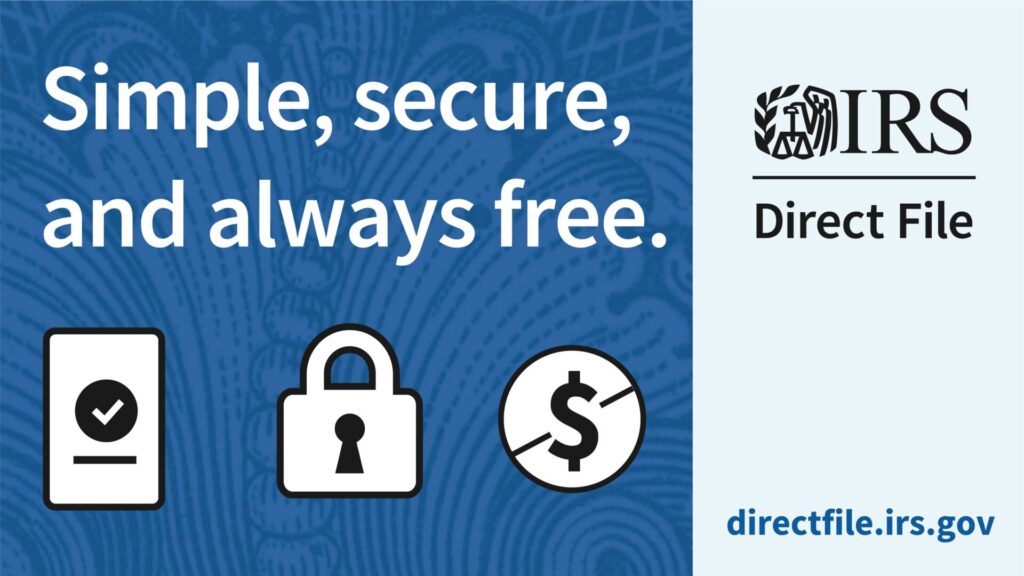Be the change: Join RESULTS advocates working to make tax filing free and fair
A historic tax-filing service is coming that will allow eligible taxpayers to file their taxes for free directly with the IRS — and RESULTS helped make it happen. The goal of the tool, called Direct File, is to make tax filing easier and cheaper. Most importantly for us, it promises to help people with lower incomes access the credits they’re eligible for, like the Child Tax Credit (CTC) and the Earned Income Tax Credit (EITC). The IRS is doing a phased roll-out of the online tool, starting with 12 states, and asking for feedback. Read on to find out if one of them is yours!
Right now, millions miss out on their tax credits because filing is difficult
RESULTS’ Economic Justice in the Tax Code campaign harnesses the power of the tax code to help people move themselves out of poverty. We’re advocating for expanding the CTC and EITC so that the people who need the credits most can receive them. But for people to benefit, they need to be able to access the funds in full.
Millions of families never claim or get the credits for which they’re eligible because of complicated filing processes and tax preparation fees. More than four million eligible children did not receive their CTC in 2021, and 21 percent of EITC eligible filers did not claim their credit. Systemic barriers make filing taxes especially difficult for people with low incomes or disabilities, people of color, and people who speak English as a second language. The Direct File tool is one way to reduce barriers and promote equity.
RESULTS experts provided the IRS with guidance on the Direct File tool
When the Inflation Reduction Act of 2022 included $80 billion in funding for the IRS, RESULTS successfully advocated that some of the money be used to explore a free filing tool. The goal was to design a free e-file tool administered by the IRS that could help remove many of the barriers and burdens of filing. RESULTS also co-founded the Coalition for Free and Fair Filing to ensure that the service becomes easy to use, inclusive, and permanent.
The IRS developed the pilot program over the course of 2023. In July of last year, RESULTS and other members of the Coalition for Free and Fair Tax Filing met with officials from the Treasury Department to discuss the pilot. When RESULTS’ staff suggested the pilot be tested by individuals with lived experience of poverty — who were most likely to have faced barriers to filing taxes and receiving tax credits — department officials enthusiastically agreed.
Last August, two of RESULTS’ Experts on Poverty tested the program and provided feedback on its design and ease of use. Maureen Bowling (pictured above) was one of them. “The IRS direct file tool offers an uncomplicated, time-saving tax filing option. No distractions and no gimmicks,” she said. “Direct File is the straightforward filing option I’ve been wanting for years.”
RESULTS will continue to weigh in as the program evolves over the coming year. We’ll also advocate to protect funding for Direct File. Opposition from tax preparation firms is steep and some members of Congress oppose funding the IRS, including Direct File.
The Direct File pilot will be in 12 states starting mid-March
The IRS plans to open Direct File up to residents in 12 states in mid-March: Arizona, California, Florida, Massachusetts, New Hampshire, New York, Nevada, South Dakota, Tennessee, Texas, Washington, and Wyoming. This pilot will reach approximately half of taxpayers with low and middle incomes and save individual taxpayers over $100 every year because it’s free. Millions of families will more easily access refundable tax credits that will help them afford basic needs.
There’s no software to buy or install. It’s mobile-friendly, which means it will work as well on a phone or tablet as it does on a computer. It’s available in English and Spanish, easy to use, and secure.
The tool is currently designed for tax filers with relatively simple returns, so visit the Direct File eligibility checker to see if you qualify. Examples of those who are eligible include people who have W-2 wage income; those claiming the EITC, CTC, and/or the Credit for Other Dependents; and those who use Individual Taxpayer Identification Numbers (ITINs) and meet the other eligibility criteria. Direct File only covers federal returns, but users will be able to file state returns through a state-sponsored software.
We encourage eligible filers to try out the tool this tax season and to share their experience with the IRS. The pilot will help the agency understand people’s experiences, evaluate customer service and technology needs, and improve the tool before it goes nationwide. To share feedback, email [email protected] by April 15, 2024 with your name and “Direct File Feedback” on the email subject.
RESULTS also appreciates hearing your thoughts as we provide input to the Treasury Department. Email David Plasterer at [email protected] with your feedback or to set up a conversation.
